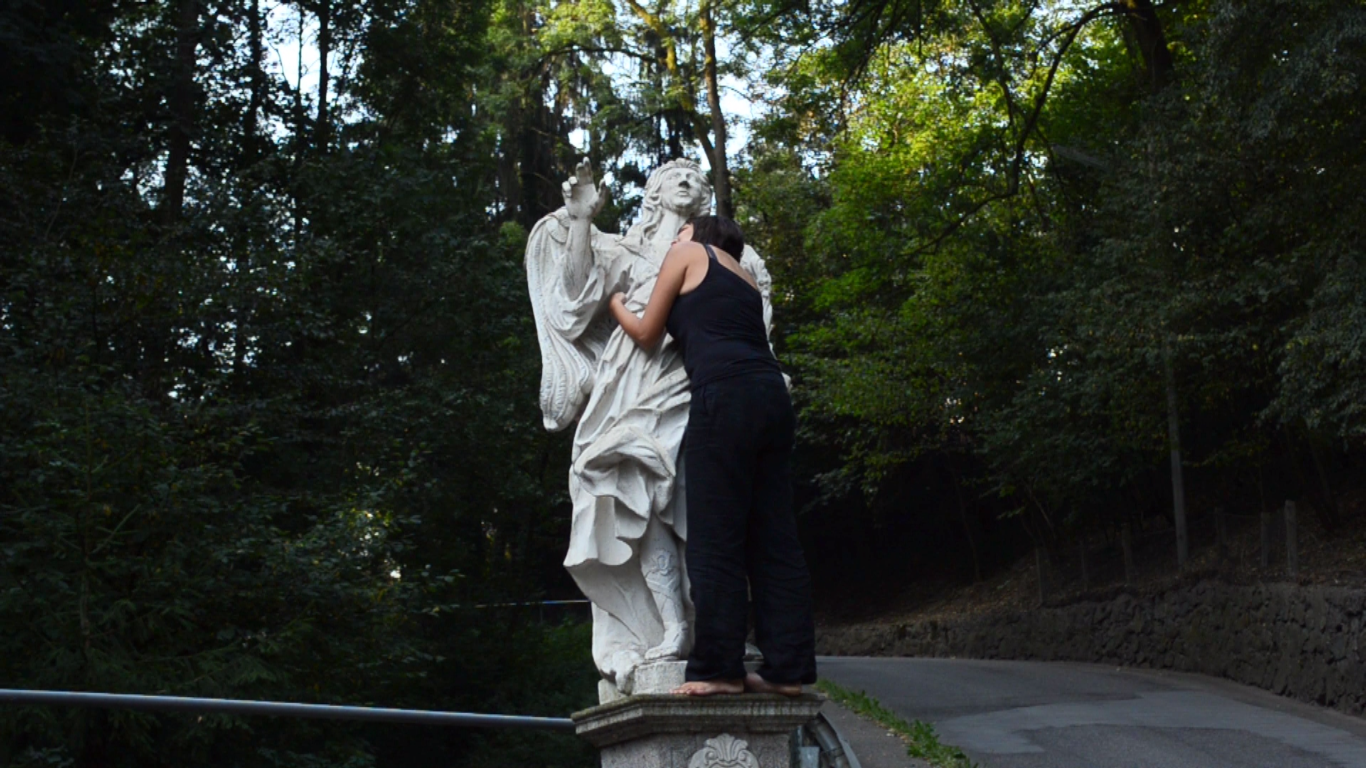Project — Overview
“The Fading Subject” is a video art installation by Nita Mocanu created during the 2015 CreArt Europe residency at Atelierhaus Salzamt, Linz, Austria. It features slow-paced videos and poetic texts, highlighting the interplay between human consciousness and nature, and exploring ecological themes and the self-referential nature of human awareness.

Video art, poetry, self, consciousness, nature
It seems to be a continuum one me
A continuum one me on the surface
This movement by myself is like floating in the air.
I have to cling to something, to someone
You climb up the stairs to the forest and it seems great, you go to see some contemporary art show and it seems it’s always the same
You have to be patient, the change is subtle
We stare blankly into the water, sometimes we look absently at each other
We are mirroring smiles
In “The Fading Subject,” the artist employs video art—a medium that has evolved to become highly condensed and rapid—to create a decelerated environment, compelling human consciousness to engage in self-awareness. The videos unfold in harmony with the rhythm of nature, necessitating patient observation of subtle movements. Poetic texts at the beginning of each video direct attention towards an inner experience and the anticipation of slowness.
The human subject in these videos is persistently interrupted and supplanted by elements foreign to human consciousness, closely associated with nature and its inherent manner of existence.
This installation delves into ecological themes and underscores the importance of understanding the workings of the human mind, particularly how it overwrites personal experiences and transforms nature into an objectified aesthetic. It explores the self-referential and selective characteristics of human consciousness.
The concept of the fading subject is portrayed as the human subject being overwhelmed and interrupted by the natural environment. To articulate this condition, the artist resorts to poetry. The videos were produced during an art residency at Atelierhaus Salzamt in Linz, Austria, as part of the CreArt Europe project, Network of Cities for Artistic Creation, in 2015.
Ellington’s research demonstrates that, although organic molecules may be necessary in attempting to design a bottom up model of an organism, genes may not actually be essential, since the ‘decision making’ potential of a living system is embedded in the entire organism.
Systems Evolution & Biofeminism: Move Over Darwin by Rachel Armstrong
Nita Mocanu. The fading subject. 2015.
10 Full HD videos.
A continuum one me (00:51’) | A zombie was here before (14:37) | Erasing the purpose of dreams (04:01’) | How am I not myself (01:07’) | Meditation video for artists (15:30’) | Phantom fragments of plants (12:14’) | The artist is dead and she knows it (03:18’) | The change is subtle, you’ve been stolen (01:16’) | The more I gazed at it (06:06’) | We were staring blankly at the water, sometimes we looked at each other (01:44’)
